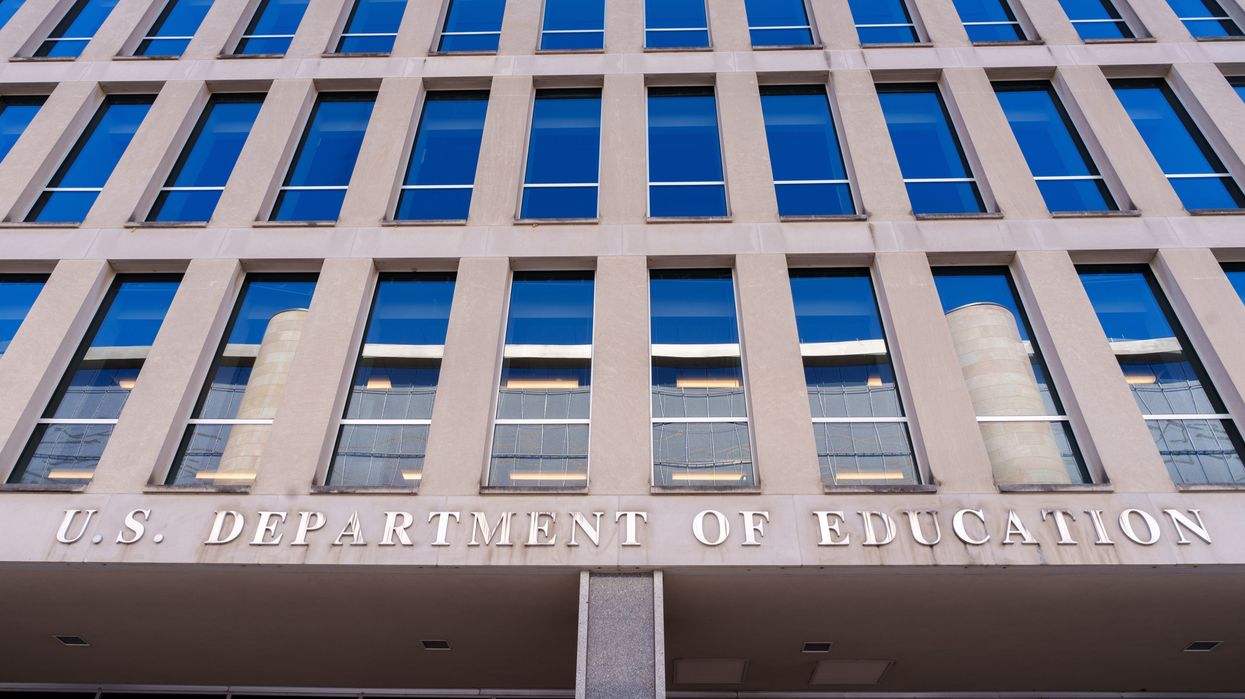Robertson is a clinical associate professor at the Rory Meyers School of Nursing at New York University and a public voices fellow with The OpEd Project.
Imagine a school where a child grappling with anxiety or depression walks the halls without access to vital mental health support — no counselors, no programs, just in silence. This unsettling scenario could become a reality if Republican proposals to abolish the Department of Education gain traction, jeopardizing not only educational standards but the emotional well-being of millions of students.
As Sen. Patty Murray (D-Wash.), chair of the Appropriations Committee, warns, “Trump’s proposal to abolish the Department of Education may sound outrageous, yet it reflects a serious movement among many Republicans.” Whether or not Donald Trump takes office in 2025, it seems clear that Republicans in Washington will continue to attempt to do away with the Department of Education. If successful, this drastic action could disrupt the daily lives of millions of families, undermining essential support systems for our children.
Many families rely on the federal government to ensure their children receive a quality education, particularly in mental health resources. The Department of Education plays a vital role in promoting both academic excellence and the social-emotional well-being of students. It provides essential funding and guidance for programs that address the mental health needs of children and adolescents. Abolishing the department risks dismantling a crucial safety net that supports our youth during formative years.
Mental health issues among students are alarmingly prevalent. According to the National Institute of Mental Health, nearly one in five children ages 13 to 18 experiences a severe mental disorder at some point in their lives. Schools are often the first line of defense in identifying and addressing these issues, as they provide a structured environment where children spend a significant portion of their day. Without the support from the Department of Education, schools would struggle to navigate these challenges.
Relying solely on state responsibilities for mental health resources is a precarious proposition. States vary dramatically in their funding, priorities and ability to address mental health issues. While Connecticut ranks among the best states for access to mental health services for children, Texas is often cited as one of the worst, highlighting significant disparities in care across the country. This inconsistency means that a child’s access to mental health support would depend largely on their zip code, perpetuating inequality and leaving many students without the help they desperately need.
The lack of bipartisan support for federal initiatives underscores a significant divide in addressing mental health in education. While there is widespread agreement on the importance of mental health services, partisan politics often frame education funding as a contentious issue rather than a shared priority. This division can lead to inconsistent support for vital programs, with some lawmakers advocating for budget cuts instead of necessary investments. As a result, schools — especially those in underserved areas — face financial barriers that hinder their ability to hire counselors and implement effective mental health strategies.
Moreover, the Department of Education facilitates critical initiatives like the School-Based Mental Health Services Grant Program, which aims to improve access to mental health services in schools. These grants help schools hire counselors, provide training for staff and develop comprehensive mental health programs. Without federal support, like the recent announcement of $70 million in awards for school-based mental health services, many schools would struggle to implement effective mental health strategies.
The implications of this situation could be devastating. Imagine a child battling severe anxiety or depression, completely devoid of the support they desperately need during school hours. In such a scenario, teachers — often untrained in mental health crises — may feel overwhelmed and ill-equipped to respond effectively, leading to increased disciplinary issues as frustrated educators resort to punitive measures instead of compassionate interventions. This, in turn, can result in plummeting academic performance and a pervasive sense of alienation, creating a toxic school environment where bullying and social isolation thrive. As mental health deteriorates, some students may face feelings of hopelessness, and tragically, the lack of support could push vulnerable individuals toward self-harm or suicidal ideation. The long-term consequences perpetuate the already existing public health crisis, as untreated mental health issues wreak havoc on the lives of these children, impacting their relationships, families, career prospects and overall quality of life.
Furthermore, the Department of Education’s emphasis on mental health has raised awareness about the importance of social-emotional learning. Programs that educate school personnel on creating safe learning environments and teaching resilience, empathy and stress management skills are vital for developing well-rounded individuals. If these programs were to fade away, we would neglect the mental health of our students and compromise their long-term success as adults.
The proposal to abolish the Department of Education poses a grave threat to mental health resources in our schools. Rather than leaving the responsibility solely to states, we must recognize the essential role the federal government plays in ensuring equitable access to mental health support for all students. As we grapple with the realities of mental health in our youth, we cannot afford to dismantle the structures that support their well-being. The stakes are too high, and our children’s futures depend on the availability of these crucial resources.



















Trump & Hegseth gave Mark Kelly a huge 2028 gift